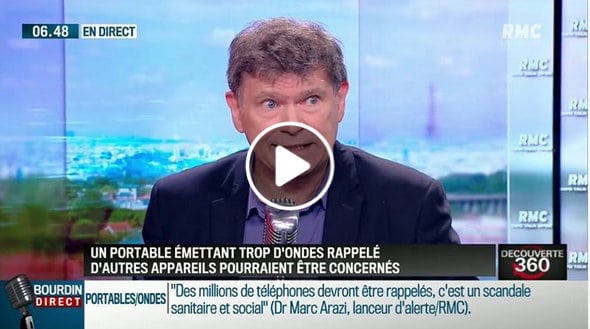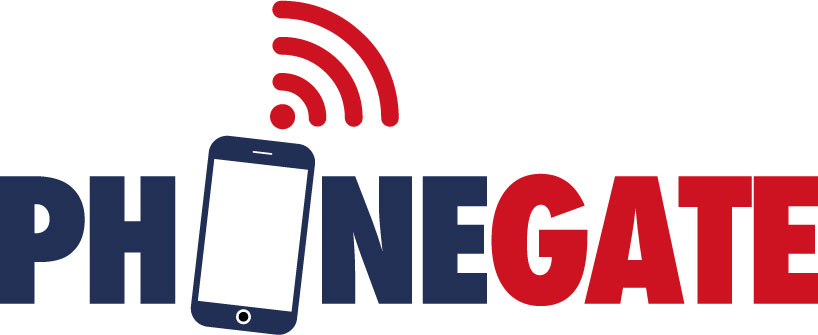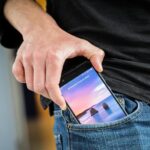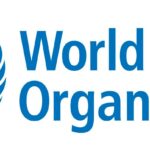Press release , April, 16, 2018
Dutch
On April 5, 2018, the French site, “60 Millions de consommateurs” announced the recall by the mobile telephony operator Orange of 90,000 cell phones of the model “Hapi 30”. The reason for the recall is that studies conducted in 2016 by the French National Frequencies Agency (ANFR) showed that the SAR limits to which the telephone must comply were exceeded when in contact with the body. ANFR says recalls could be repeated since they have recorded some other phones that exceed the limits.
As in France, a study of the SAR values was also carried out in the Netherlands by Agentschap Telecom – which controls the compliance of the placing on the market of mobile phones sold in the Netherlands – in its ‘Onderzoek inzake SAR-waarden van mobiele telefoons’ in 2009. The reason was that an inspection in 2008 revealed that a phone exceeded the prescribed SAR value of 2W/kg and was therefore withdrawn from the market. After 2009, Agentschap Telecom saw no reason to carry out another investigation. The ANFR’s test results, which are relevant not only for France but also for all European countries, urgently call for this as well as for transparency. The Dutch have the right to know what levels of radiofrequency radiation they are exposed to on a daily basis and they must be informed about this.
Certainly in the light of the health and industrial scandal Phonegate. This is called a scandal because 9 out of 10 phones, tested by ANFR in 2015, when used on contact with the body exceed the radiation limits and some by three to four times. The test seems to be rigged. Phones are passing compliance tests but violate radiation limits because the test strategy does not measure use against the body in the way we actually use cell phones. Dr. Marc Arazi, whistleblower and president of the association “Phonegate Alert”, speaks “of a first and a big step forward with the recall of the Hapi 30. He calls for millions of phones to be taken off the market because they exceed SAR limits when used on the body, exposing consumers to values that have not been safe for decades. Recalls should also take place in the Netherlands”.
In the light of these developments, it is worrying that telecommunications companies are showing children in unsafe situations, thereby promoting unsafe behaviour. This is the case in an advertisement by the Dutch telecom provider KPN in which it is shown that two toddlers keep mobile phones on their bodies. This advertisement and one in which a teenager keeps a phone in his pocket have been the start of years of legal battle that Martine Vriens, legal consultant, has been waging to the present day, and which is in line with the Phonegate scandal.
Because this is incorrect and children are at risk of health damage, Vriens – also on behalf of ten organisations* – wrote to Agentschap Telecom. Negotiations will soon take place between the Agentschap and a delegation of the organisations, and later possibly with KPN and ‘Stichting Reclame Code’. The Agency indicated by phone that it was interested in the developments taking place in France and it would inform the Rijksinstituut voor Volksgezondheid en Milieu (RIVM) (National Institute of Public Health and the Environment).
The importance of this issue, especially for children and young people, is confirmed by Dr. Annie J. Sasco, MD, DrPH, former Chief of Unit of Epidemiology for Cancer Prevention at the International Agency for Research on Cancer – World Health Organization: « In May 2011, the IARC classified the EMF exposure as a possible carcinogen. Since then new studies were published, both epidemiological and experimental ones, reinforcing the evidence of carcinogenicity and several other detrimental health effects were described. With the new data on SAR measured in contact with the body, it becomes more than ever necessary to strengthen the safety recommendations to preserve the health of everyone in particular of fetuses, babies and children. »
In the negociations with Agentschap Telecom, Vriens will argue for a ban on the advertisement and, more generally, for information campaigns on how to use mobile phones safely. Research on SAR values will also be needed. And, like their colleague ANFR, this should lead to recalls.

April 6, Interview with Dr. Marc Arazi by French journalist Jean-Jacques Bourdin for RMC-BFMTV:
April 14, RTL Belgium article on Phonegate: https://www.rtl.be/info/magazine/sante/attention-aux-ondes-de-votre-gsm-un-scandale-sanitaire-pourrait-bientot-etre-revele-1013065.aspx
Contact :
Martine Vriens – Phonegate Alert Nederland martinevriens(at)hotmail.com
Dr Marc Arazi, President and co-founder Phonegate Alert drarazi(at)phonegatealert.org
*Stopumts, Stichting EHS, SOS Stop-Overdosis-Straling, Zeeuws Platform Stralingsrisico, Verminder Elektrosmog, Nationaal Platform Stralingsrisico’s, Vereniging Meetspecialisten Elektromagnetische Straling (VEMES), Zendmast Anders, Stichting Kennisplatform Elektromagnetische Straling, Stralingsbewustzijn, em.prof. Michiel Haas MSc/PhD (founder NIBE), mr. Leon Kraijenbrink.

![[Press release] Phonegate developments in the Netherlands. Our mobile phones are not safe !](https://phonegatealert.org/wp-content/uploads/2018/04/pressrelease.png)




